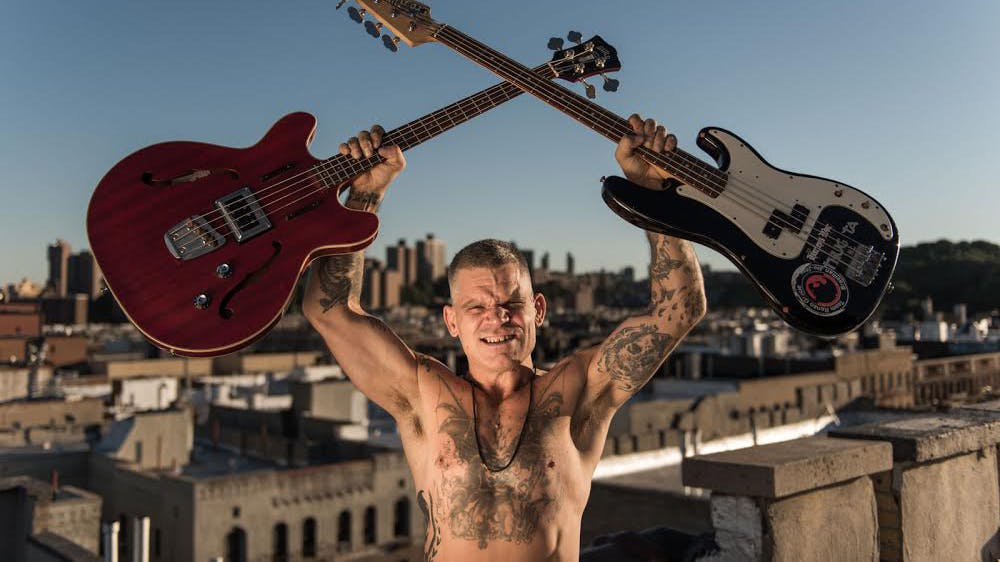You’ve said that you became a menace to society. How did you pull yourself out of that mindset?
“I’ve just lived long enough. I don’t think I would have survived my life had I not taken on that exoskeleton I had; I almost had to bathe in the blood in order to not be squeamish. For a lot of my youth I spent years fucked up on drugs and alcohol and I think a lot of that was me self-medicating to deal with the post-traumatic stress of it all. I didn’t even know I had PTSD until a friend of mine, a Navy Seal, said, ‘Dude, you have PTSD like a motherfucker, there’s no question in my mind.’ And it wasn’t until I really started to think about it that I realised that a lot of my life was me reacting to things based on that. I don’t necessarily think I would have been such a violent or angry person for so much of my youth had I not been through a lot of the experiences that I went through. I don’t think that’s who I am at my core. That was the post-traumatic stress that was causing me to react a certain way. Now, that being said, had I not had that ability to react in that kind of a way, I might not have survived my youth. Had I not been willing to take things to 11 when other people wanted to take them to 10, I might not have made it. Now, how did I pull myself out? I stayed alive long enough. I also didn’t want my kids to go through the things that I went through. I’ve also been fortunate enough to find my way to jiu-jitsu and have been doing that for more than 20 years, which has levelled me out a little bit. But life is crazy, you know. My son’s friend got killed in a drive-by the other day, so that shit is still out there.”
The Cro-Mags are back with their first album for two decades. It’s been quite a while, Harley.
“I will always be playing music, whether I get paid or not. If you look around the room I’m sitting in, there are two basses and an acoustic guitar in here, plus a piano. Music to me is like breathing. If you took that away from me I would be very empty. It’s a compulsion for me. I could literally pick up an instrument any time of night or day and say, ‘Okay, I’m going to write a song,’ and I’ll just do it. It’s not like I need something to spark my inspiration because it’s always there. If I want to write a song right fucking now, give me 10 minutes and it’s done. I’ve written 65 things over the course of this quarantine, and I’ve been in the studio over the past three weeks recording the next album. As for returning with the Cro-Mags, let me tell you, this is long overdue.”
Harley Flanagan in 2020. What is your philosophy on life?
“I’ve learned how to appreciate things so much. The struggles in life that I’ve been through are reflected on this new album. I’ve really learned to value life and on this record I want to encourage people to keep fighting. I went through fucking hell in my life, but I’m in a better place right now than I’ve ever been. So if I have a message for anybody it’s that no matter how hard life is at any given moment, just keep fighting because once you get to the other side of that struggle you’ll have a whole new life. You don’t know what the future holds.”
Cro-Mags' new album is out now via Arising Empire.
Read this next:
